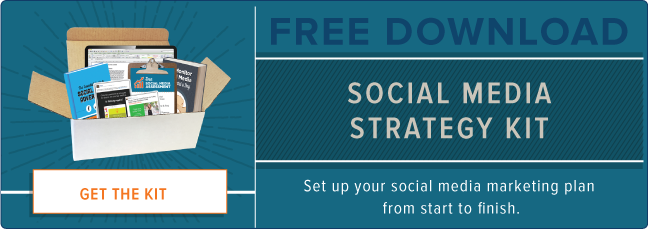
"Imagine a world where everything moves at super-fast speed. Where answers come in seconds, rather than in minutes, where solving several problems at the same time isn’t fantasy, but a daily reality.
Imagine being able to use your brain to do more in an hour than most people do in a day, every single day."
That’s how Peter Shankman -- entrepreneur, author, and founder of HARO -- describes the world of ADD and ADHD on his Faster Than Normal website, podcast, and blog.
I think that the way Peter describes ADD as "fast brain" is perfectly suited to the world of marketing, i.e. having multiple clients; multiple marketing platforms; an array of immediate challenges and decisions; a mass of data and a cohort comprised of other fast thinkers. I thought those in creative professions might appreciate hearing Shankman's take on ADHD and our digital universe.
I bet there is a very good chance that you, as an online marketer, recognize yourself as a "fast brain."
Peter Shankman Discusses ADHD & Marketing
What is ADD/ADHD and how did you decide to dig deep into this subject?
Shankman: I was gifted with ADHD as a condition since birth but I never looked at it as condition ... I looked at it as a condition as a kid when I didn't know what it was. When I was growing up, it was called, "Sit down…you're disrupting the class" disease.
It wasn't until my late 20's that I realized that this faster brain of mine actually had the ability to be used for good. I decided to start my first company at 26 because I was bored working for other people.
I never thought of the downside. I just thought, "Let's see what happens. If doesn't work, I'll do something else." That mentality of, "Hey, let's try it." has been really a cornerstone of the majority of my success of late and all my life really. What I found is that other people with ADHD tend to have that same quality.
About two years ago, I did a webinar talking about my ADHD superpower to help some friends who were in a similar situation. I gave it for free and I thought like 100 people maybe would show up and I had over 8,000 people on the webinar. I realized, "Hey, I'm not alone here. There's something here."
So how should a marketer with ADHD use its power in their work?
Shankman: The beauty of creativity is that creativity and ADHD are incredibly tightly related. The best creativity, the best campaigns, the best anything come from people who are able to channel their excess energy into their brains the right away.
I guarantee that agency people who come up with the big ideas probably have ADHD.
However, for advertising work, it's perfect as long as the agency has the right combination of ADHD and non-ADHD people. If you have all ADHD people, yes you'll have the greatest ideas in the world, but you'll never be able to implement. If you have a combination of ADHD or faster brains and non-faster brains you know, the faster brains coming up with the great ideas and the non-faster brains (deeper thinkers) being able to implement. That's a recipe for complete success.
You’ve said that 40% of the population might have some level of ADHD. How should a marketer approach this market, especially since they now have so many digital devices that add to their world of distraction?
Shankman: The key that the marketer needs to understand is that you have to understand your audience. If you reach out to an ADHD audience in the exact way that they'd like to be reached out to, it's like their ADHD disappears. For instance, if you're sending me a 14-paragraph email to try to introduce yourself, I'm not going to read it. If you could send me two lines and it tells me what I need to know, chances are I'm going to want more information. As soon as I want more information, that changes the entire discussion because then I'm actively listening.
It's never been truer than with this sort of 2.7-second attention deficit squirrel mentality that we're all in, a marketer needs to understand how her audience and their brain works.
The world of inbound marketing is deep into analytics. How should an inbound marketer use analytics to help them reach the ADHD market?
Shankman: Men lie. Women lie. Children lie. Pets and data are the two things that don't lie. Listening to your audience and learning from them 24/7 is key. If I could A/B test how I walk to the bus stop, I would. As those of us with ADHD are listening, chances are, we're already three steps ahead of where we were when you first found us. It's up to you, the advertiser, to keep up. It's up to you to know where we're going, what we want, and what we'll need when we get there. Do that, and you'll capture more attention than you'll know what to do with.
Adapting Marketing Strategies for Distraction
I am sure that many of you digital marketers were perpetually distracted students like me. I was the type of student that was bored and whose grades never matched his potential. After all, I really didn’t want to have to take biology to fulfill my college science prerequisites.
Fortunately, I managed to find my way to art college and eventually to a long career in advertising and digital marketing -- the perfect industry for fast brains.
Shankman thinks that 40% of the population has some degree of ADHD. If this is so (and I agree), then we should consider how to bake this important consumer insight into our marketing strategies.
Of course, this isn’t groundbreaking news. We are well aware of the effect of device distraction and content marketing overload. However, I seldom see marketing communications professionals sit their clients down and tell them that they really only have nano-seconds to deliver a sales proposition. I am talking about the critical importance of having an ‘unignorable’ sales proposition -- not just an ad tech solution.
from HubSpot Marketing Blog https://blog.hubspot.com/marketing/the-insane-power-of-adhd-marketing

No comments:
Post a Comment